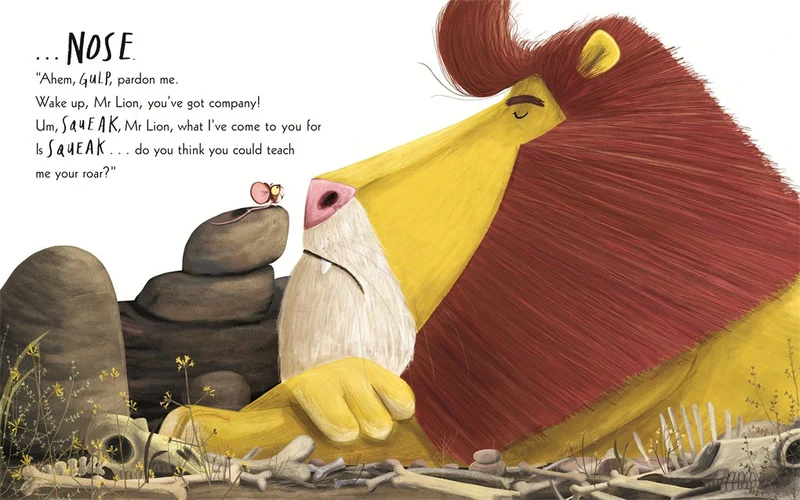With Mothers and Daughters, Its Always Complicated

THE YELLOW BIRD SINGS
By Jennifer Rosner
304 pp. Flatiron. $25.99.
Rosner’s exquisite, heart-rending debut novel is proof that there’s always going to be room for another story about World War II. The story, set in Poland, opens with Roza and her 5-year-old daughter, Shira, hiding in a hayloft after the rest of their family has been murdered. The barn belongs to a man who used to frequent Roza’s family’s bakery, before the war. “He had been friendly, maybe even a little flirtatious, when Roza worked at the counter,” so she pins her hopes on his willingness to help them for a while. Very soon she is made to understand that his help won’t come free.
In the meantime, Shira, a musical prodigy who must be quiet at all times, takes comfort in the yellow bird she grasps almost constantly in her hands, and when the bird trills, it’s as if the singing comes from Shira. Eventually, by bending and tearing the hay to shape notes, her mother begins to teach her how to read and hear music, even if that music is playing only in her mind.
They cannot stay in the barn forever, and from there the novel’s urgency rivals the moment in “Room” when Ma decides that the make-or-break moment has arrived. Except in this case, the reader is able to fill in so much of the white space with what we already know about Poland in these years.
This is an absolutely beautiful and necessary novel, full of heartbreak but also hope, about the bond between mother and daughter, and the sacrifices made for love.
AMERICAN DAUGHTER
By Stephanie Thornton Plymale with Elissa Wald
296 pp. River Grove. Paper, $16.95.
On the day Plymale discovers her calling, she’s living in a station wagon with four of her siblings and their mother, who leaves the children alone all day while she works at a local motel (only to spend most of her paycheck on weed). Unschooled, unsupervised, the two eldest children, aged 10 and 9, gather seaweed for the younger ones to eat. One day, a man living in a nearby bus invites the children inside — but instead of the scene we expect, we’re given the beginning of a life’s dream. In that bus, refitted for comfort, 7-year-old Plymale first encounters “a vision of sanctuary, of a haven, ensconced within the metal shell of a battered old vehicle.”
It’s a memory that ends up defining her lifelong idea of “home.” Through two near-fatal car accidents with her mother’s drunken boyfriend at the wheel, general neglect, state intervention, separation from her siblings, sexual abuse at the hands of a foster father, and on and on, Plymale remembers the feeling of comfort she had when she stepped inside that bus, and goes on to become the chief executive of a prestigious interior design school. The memoir focuses on Plymale’s volatile mother, who seems criminally selfish, indifferent to the damage she leaves in her wake, and Plymale’s discovery that there’s far more to her mother’s story. Despite a lifetime of cruelty and indifference, Plymale loves her mother, sometimes inexplicably so, and it’s that love that pulls her back to her mother’s side after a long period of estrangement, in the hopes of finding out more about her own blank heritage. She knows little of her mother’s childhood, and neither she nor her mother knows who Plymale’s father is. When her mother develops a terminal illness, Plymale is determined to discover what she needs to know before it’s too late.
If the dialogue in this memoir feels wooden at times, the extraordinary arc of Plymale’s life more than makes up for it. Her lineage, which she traces back to the Revolutionary War, represents a sort of inverse American dream. Descended from wealth and status — one ancestor owned what was the largest ironworks in the world, another was a cotton magnate — her people become less respectable through the generations until the line arrives at Plymale herself, whose own life marks the point where the needle begins to move in a positive direction once again. It’s a story of redemption and forgiveness.
WHAT WE CARRY
By Maya Shanbhag Lang
272 pp. Dial. $27.
Lang’s memoir about her relationship with her aging mother begins simply, sweetly. As a new mother in an unfamiliar city with a husband who travels frequently for work, Lang suffers from a serious case of postpartum depression and seeks advice from her own mother, an Indian immigrant and psychiatrist whom she misses very much since moving to the opposite side of the country. Her mother’s work ethic and self-sufficiency had always been a model for Lang, and she recalls for the reader times in the past when her mother’s love and strength comforted her. But when her mother refuses to provide emotional support at the moment Lang needs it most, Lang begins to ask larger questions about their long shared history, female identity, family and the power of stories handed down through generations.
In the end, this memoir is more than the sum of its parts. Where the first half feels specific to Lang as the first American-born daughter of a mother who vacillated between tradition and progress, the second half becomes a larger mediation on motherhood, daughterhood and feminism — claiming oneself above all, and the moral struggle involved in doing so. The shined-up, mythical stories our mothers tell us about their own beginnings are meant to bolster us, perhaps; but here, in exquisitely precise prose, Lang makes an argument that honesty is what’s truly empowering. In the closing chapters, we see a relationship between mother and daughter that feels new and tentative — because life changes so much every few years, bringing out unseen sides to each of them.




